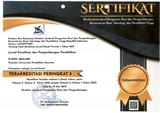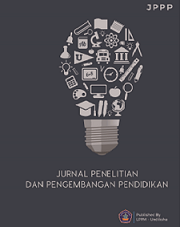Improving Students’ Critical Thinking Skills Through Case Based Learning Oriented Textbook
DOI:
https://doi.org/10.23887/jppp.v6i3.56179Keywords:
Textbooks, Case-Based Learning (CBL), Law and International Relations CoursesAbstract
The development of teaching materials is a manifestation of the lecturer's efforts to develop a strategy in learning that adjusts specific principles by making various adaptations to various learning theories. The development of teaching materials functions as a medium that will facilitate each student to achieve learning outcomes from the material to be studied. This study aims to develop a valid, practical, and effective textbook of Law and International Relation courses using case-based learning framework, and prove its potential impact on student's critical thinking skills. This development research used the Hannafin and Peck model which consists of three phases of activity: analysis, design and development and implementation, and evaluation and revision process. The results of the study showed that the developed textbook was valid after being reviewed by instructional design experts and material experts regarding the feasibility of content, presentation and language with the mean score 3.88 (valid category) for the material and 4.28 (very valid category) for the design. The textbook was declared practical after being tested at the one-to-one evaluation and small group evaluation stages with the mean score 55.67 (practical category). The field test on students’ critical thinking skills revealed that the mean score for pre-test was 60.4 and the mean score was increased for the post-test to 91.2 with an N-gain value of 0.78 (high category). This means the developed case-based learning oriented textbook effectively improves the student’s critical thinking skills.
References
Agustin, S. P., & Rafsanjani, M. A. (2022). Pengembangan E-Modul Pada Materi Badan Usaha Dalam Perekonomian Indonesia Untuk Meningkatkan Hasil Belajar Siswa Kelas X IPS 4 SMAN 1 Kutorejo. Jurnal Pendidikan Ekonomi, 7(2), 40–57. https://doi.org/10.31932/jpe.v7i2.1725.
Alfiandra, A., Safitri, S., & Dianti, P. (2018). Implementasi model controversial issue dalam mata kuliah Pendidikan Kewarganegaraan. Jurnal Civics: Media Kajian Kewarganegaraan, 15(1), 62–73. https://doi.org/10.21831/jc.v15i1.17281. DOI: https://doi.org/10.21831/jc.v15i1.17281
Anas, M. (2021). Pengembangan Bahan Ajar Berbasis Kasus: Menuju Inovasi Pembelajaran Mata Kuliah Kajian Makro Ekonomi. SOSIOEDUKASI: Jurnal Ilmiah Ilmu Pendidikan Dan Sosial, 10(1), 113–124. http://ejournal.unibabwi.ac.id/index.php/sosioedukasi/article/view/1323.
Arianto, H., Niswatul, H., Jurusan, F., Ilmu, T., Alam, P., Tarbiyah, F., & Keguruan, I. (2020). Students’ Response to the Implementation of Case Based Learning (CBL) Based on HOTS in Junior High School Article Information. NSECTA: Integrative Science Education and Teaching Activity Journal, 1(1), 45–49. https://jurnal.iainponorogo.ac.id/index.php/insecta. DOI: https://doi.org/10.21154/insecta.v1i1.2058
Aslan, A. (2021). Problem- based learning in live online classes: Learning achievement, problem-solving skill, communication skill, and interaction. Computers and Education, 171. https://doi.org/10.1016/j.compedu.2021.104237. DOI: https://doi.org/10.1016/j.compedu.2021.104237
Astutik, H. S., & Triono, M. (2018). Keefektifan Penerapan Problem Based Learning Ditinjau Dari Motivasi, Minat Dan Hasil Belajar Siswa Smp/Mts Se-Kabupaten Sorong. Jurnal Pendidikan, 6(1). https://doi.org/10.36232/pendidikan.v6i1.100. DOI: https://doi.org/10.36232/pendidikan.v6i1.100
Bansal, M., & Goyal, M. (2017). To introduce and measure the effectiveness of case based learning in physiology. International Journal of Research in Medical Sciences, 5(2), 437. https://doi.org/10.18203/2320-6012.ijrms20170043. DOI: https://doi.org/10.18203/2320-6012.ijrms20170043
Dinni, H. N. (2018). HOTS (High Order Thinking Skills) dan kaitannya dengan kemampuan literasi matematika. In PRISMA, Prosiding Seminar Nasional Matematika, 170–176. https://journal.unnes.ac.id/sju/index.php/prisma/article/view/19597.
Djamaluddin, A., & Wardana. (2019). Belajar Dan Pembelajaran (1st ed.). Cv. Kaaffah Learning Center.
Gebre, E. (2018). Learning with multiple representations: Infographics as cognitive tools for authentic learning in science literacy. Canadian Journal of Learning and Technology, 44(1), 1–24. https://doi.org/10.21432/cjlt27572. DOI: https://doi.org/10.21432/cjlt27572
Halamury, M. F. (2021). Bahan Ajar Alat Permainan Edukatif (Ape) Berbasis Karakter Bagi Mahasiswa Prodi Pkaud Iakn Ambon. Tangkoleh Putai, 18(1), 40–63. https://doi.org/10.37196/tp.v19i1.57.
Haryanti, Y. D. (2017). Model Problem Based Learning Membangun Kemampuan Berpikir Kritis Siswa Sekolah Dasar. Jurnal Cakrawala Pendas, 3(2). https://doi.org/10.31949/jcp.v3i2.596. DOI: https://doi.org/10.31949/jcp.v3i2.596
Japar, M. (2018). The Improvement of Indonesia Students ‘Engagement in Civic Education through Case-Based Learning.’ Journal of Social Studies Education Research, 9(3), 27–44. https://dergipark.org.tr/en/pub/jsser/issue/43625/534222.
Jauhar, S. (2018). Pengembangan bahan ajar IPS berbasis pendekatan Sains Teknologi Masyarakat (STM) untuk meningkatkan kreativitas siswa. Seminar Nasional Pengabdian Kepada Masyarakat, 1. http://download.garuda.kemdikbud.go.id/article.php?article=2930879&val. DOI: https://doi.org/10.26858/jkp.v2i2.6946
Juandi, D., & Tamur, M. (2021). The impact of problem-based learning toward enhancing mathematical thinking: A meta-analysis study. Journal of Engineering Science and Technology, 16(4), 3548–3561. https://www.researchgate.net/publication/353759290.
Kaddoura, M. A. (2010). New graduate nurses’ perceptions of the effects of clinical simulation on their critical thinking, learning, and confidence. Continuing Education in Nursing, 41, 506–516. https://doi.org/10.3928/00220124-20100701-02. DOI: https://doi.org/10.3928/00220124-20100701-02
Khadijah, P. S., Hardian, K., Ibrahim, M., & Khasanah, B. F. (2022). Desain Pembelajaran Berbasis Case Study pada Mata Kuliah Pendidikan IPS. Indonesian Journal of Social Science Education (IJSSE), 4(2), 95–105. https://doi.org/10.29300/ijsse.v4i2.7562. DOI: https://doi.org/10.29300/ijsse.v4i2.7562
Kurniawan, N. A., Hidayah, N., & Rahman, D. H. (2021). Analisis Kemampuan Berpikir Kritis Siswa SMK. Jurnal Pendidikan: Teori, Penelitian, Dan Pengembangan, 6(3), 334. https://doi.org/10.17977/jptpp.v6i3.14579. DOI: https://doi.org/10.17977/jptpp.v6i3.14579
Lestari, M. (2016). Pengembangan Bahan Ajar IPS Berbasis Konstruktivistik Untuk Sekolah Dasar. Perspektif Ilmu Pendidikan, 30(2), 99–104. https://doi.org/10.21009/pip.302.4. DOI: https://doi.org/10.21009/PIP.302.4
Ma, C., & Zhou, W. (2022). Effects of unfolding case-based learning on academic achievement, critical thinking, and self-confidence in undergraduate nursing students learning health assessment skills. Nurse Education in Practice, 60, 103321. https://doi.org/10.1016/j.nepr.2022.103321. DOI: https://doi.org/10.1016/j.nepr.2022.103321
Mahmudah, R., Aeni, C., & Innayah, R. (2017). Pembelajaran Cooperative Learning Metode Case Studies Dengan Media Komik Pada Mata Pelajaran Ekonomi Di SMA Muhammadiyah 3 Bancar. Jurnal Teladan: Jurnal Ilmu Pendidikan Dan Pembelajaran, 2(2), 101–114. http://download.garuda.kemdikbud.go.id/article.php?article=856713&val.
Maryati, I. (2018). Penerapan Model Pembelajaran Berbasis Masalah Pada Materi Pola Bilangan Di Kelas VII Sekolah Menengah Pertama. Mosharafa, 7(1), 63. http://e-mosharafa.org/index.php/mosharafa. DOI: https://doi.org/10.31980/mosharafa.v7i1.342
Maslakhatunni’mah, D., Safitri, L. B., & Agnafia, D. N. (2019). Analisis Kemampuan Berfikir Kritis Pada Mata Pelajaran IPA Siswa Kelas VII SMP. In Prosiding SNPS (Seminar Nasional Pendidikan Sains), 179–185. https://jurnal.fkip.uns.ac.id/index.php/snps/article/view/12852.
Perry, K. E. (2022). Auditing a case study: Enhancing case-based learning in education for sustainability. Journal of Cleaner Production, 381(1). https://doi.org/10.1016/j.jclepro.2022.134944. DOI: https://doi.org/10.1016/j.jclepro.2022.134944
Purawati, R., Hobri., & Fatahillah, A. (2016). Analisis Kemampuan Bepikir Kritis dalam menyelesaikan masalah persamaan Kuadrat pada pembelajaran Model Creative Problem Solving. Kadikma, 7(1), 84–93. https://doi.org/10.2331/suisan.35.791. DOI: https://doi.org/10.2331/suisan.35.791
Rahardhian, A. (2022). Kajian Kemampuan Berpikir Kritis (Critical Thinking Skill) Dari Sudut Pandang Filsafat. Jurnal Filsafat Indonesia, 5(2), 87–94. https://ejournal.undiksha.ac.id/index.php/JFI/article/view/42092.
Rahayu, T., Syafril, S., Wati, W., & Yuberti, Y. (2017). The Application of STAD- Cooperative Learning in Developing Integrated Science on Students Worksheet. Jurnal Ilmiah Pendidikan Fisika Al-Biruni, 6(2), 247–254. https://doi.org/10.24042/jipfalbiruni.v6i2.1933. DOI: https://doi.org/10.24042/jipfalbiruni.v6i2.1933
Raji, B. (2019). Significance and challenges of computer assisted education programs in the UAE: A case study of higher learning and vocational education. Education and Information Technologies, 24(1), 153–164. https://doi.org/10.1007/s10639-018-9767-6. DOI: https://doi.org/10.1007/s10639-018-9767-6
Rani, F. N., Napitupulu, E., & Siregar, H. (2018). Analisis Kemampuan Berpikir Kritis Matematis Siswa melalui Pendekatan Realistic Mathematics Education di SMP Negeri 3 Stabat. PARADIKMA: Jurnal Pendidikan Matematika, 11(1). https://doi.org/10.24114/paradikma.v11i1.22886.
Servant-Miklos, V. F. C. (2019). Fifty Years on: A Retrospective on the World’s First Problem-based Learning Programme at McMaster University Medical School. Health Professions Education, 5(1), 3–12. https://doi.org/10.1016/j.hpe.2018.04.002. DOI: https://doi.org/10.1016/j.hpe.2018.04.002
Sulaiman, A., & Syakarofath, N. A. (2018). Berpikir Kritis: Mendorong Introduksi dan Reformulasi Konsep dalam Psikologi Islam. Buletin Psikologi, 26(2), 86. https://doi.org/10.22146/buletinpsikologi.38660. DOI: https://doi.org/10.22146/buletinpsikologi.38660
Sumarsih, S. M., Susanti, L. R. R., & Slamet, A. (2021). Pengembangan Multimedia Pembelajaran PPKn Kelas VIII Sekolah Menengah Pertama. JKTP: Jurnal Kajian Teknologi Pendidikan, 4(4), 368–377. https://doi.org/10.17977/um038v4i42021p368. DOI: https://doi.org/10.17977/um038v4i42021p368
Syarafina, D. N., Dewi, E. R., & Amiyani, R. (2017). Penerapan Case Based Learning (CBL) sebagai Pembelajaran Matematika yang Inovatif. In Prosiding Seminar Matematika Dan Pendidikan Matematika UNY, 978–602. http://seminar.uny.ac.id/semnasmatematika/sites/seminar.uny.ac.id.semnasmatematika/files/full/M-37.pdf.
Wati, D. A., & Sunarti, T. (2020). Implementation of Case Based Learning (CBL) to Improve Scientific Reasoning Skill on Simple Harmonic Vibration Topic. Journal of Physics: Conference Series, 1491(1). https://doi.org/10.1088/1742-6596/1491/1/012040. DOI: https://doi.org/10.1088/1742-6596/1491/1/012040
Werdyadiningsih, D., & Sunismi Wahyuni, S. (2021). Pembelajaran Berbasis Kasus (1st ed.). CV Literasi Nusantara Abadi.
Yusnidar, Y., & Syahri, W. (2022). Implementasi Microlearning Berbasis Case Study Terhadap Hasil Belajar Mahasiswa Pendidikan Kimia. Jurnal Studi Guru Dan Pembelajaran, 5(1), 71–77. https://doi.org/10.30605/jsgp.5.1.2022.1530. DOI: https://doi.org/10.30605/jsgp.5.1.2022.1530
Downloads
Published
How to Cite
Issue
Section
License
Copyright (c) 2022 Alfiandra Alfiandra, Syafruddin Yusuf, Ikbal Barlian

This work is licensed under a Creative Commons Attribution-ShareAlike 4.0 International License.
Authors who publish with the Jurnal Penelitian dan Pengembangan Pendidikan agree to the following terms:
- Authors retain copyright and grant the journal the right of first publication with the work simultaneously licensed under a Creative Commons Attribution License (CC BY-SA 4.0) that allows others to share the work with an acknowledgment of the work's authorship and initial publication in this journal.
- Authors are able to enter into separate, additional contractual arrangements for the non-exclusive distribution of the journal's published version of the work (e.g., post it to an institutional repository or publish it in a book), with an acknowledgment of its initial publication in this journal.
- Authors are permitted and encouraged to post their work online (e.g., in institutional repositories or on their website) prior to and during the submission process, as it can lead to productive exchanges, as well as earlier and greater citation of published work. (See The Effect of Open Access)







